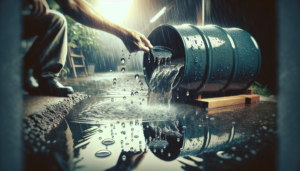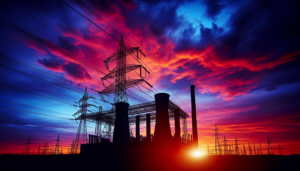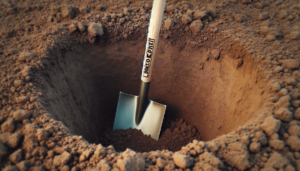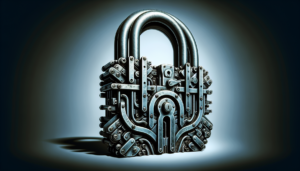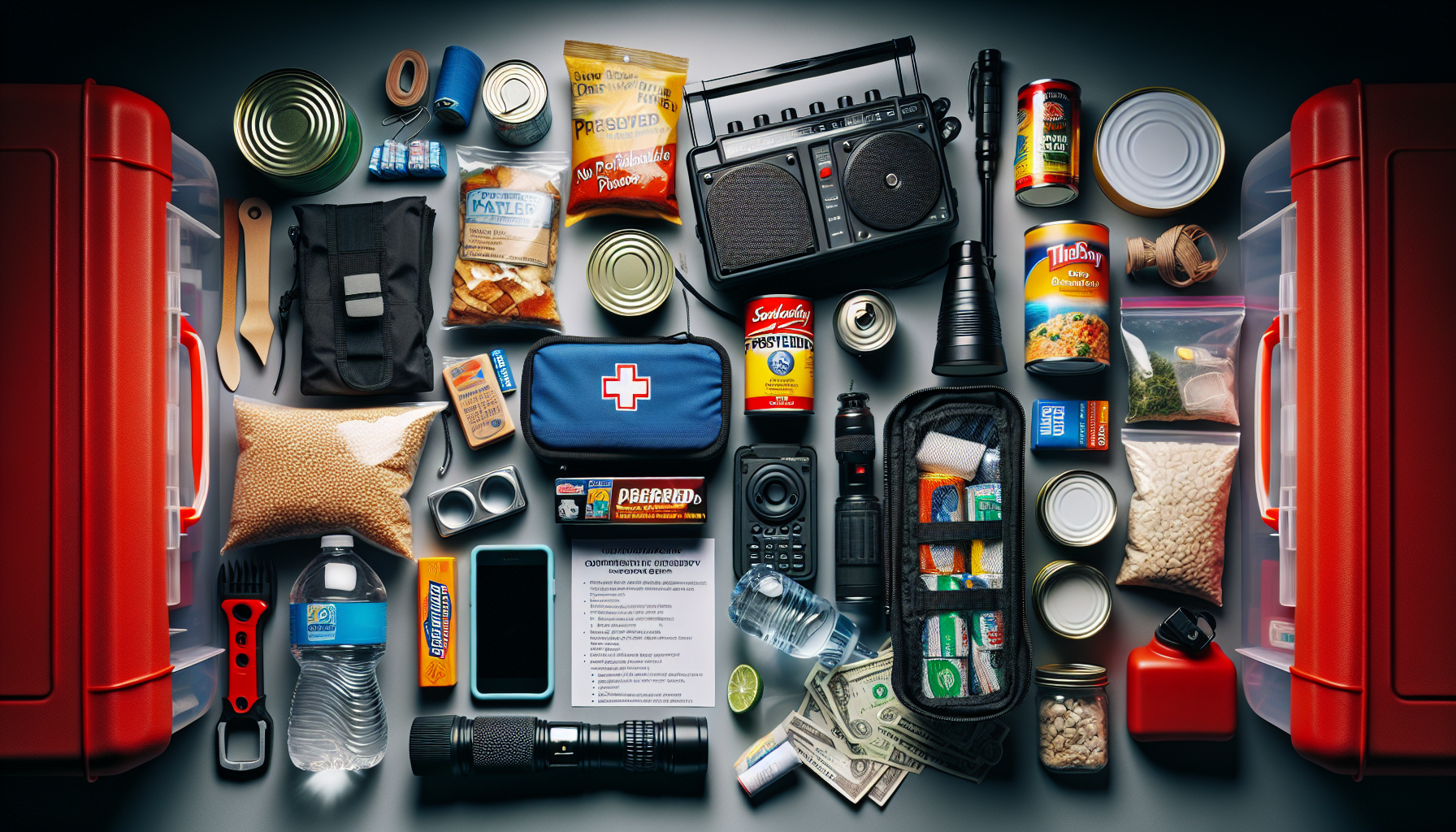
In order to effectively prepare for an extended power outage or grid failure, it is crucial to have a clear understanding of the potential challenges and necessary steps to safeguard yourself and your loved ones. From ensuring a reliable emergency power source to stocking up on essential supplies, this article will provide you with valuable insights and practical tips to navigate through such unprecedented situations. So, let us delve into the essential strategies that will empower you to face the uncertainties posed by power outages or grid failures with confidence and resilience.
Creating an Emergency Plan
Identify potential risks and hazards
When preparing for an extended power outage or grid failure, it is essential to identify potential risks and hazards specific to your location and circumstances. Consider factors such as severe weather conditions, natural disasters, and the infrastructure vulnerabilities in your area. Conduct thorough research and consult local authorities or emergency management agencies to gain a comprehensive understanding of the potential risks you may face.
Develop a communication plan
During an extended power outage or grid failure, communication is key to ensuring your safety and the safety of your loved ones. Develop a communication plan that includes contact information for family members, neighbors, and emergency services. Consider designating a trusted out-of-state contact who can act as a central point of communication for everyone involved. Additionally, familiarize yourself with alternative communication methods such as walkie-talkies or ham radios.
Establish a meeting point
In the event of an extended power outage, it is important to establish a designated meeting point for your family or household. This meeting point should be a safe location in close proximity to your home, but outside of potential danger zones. Ensure that all family members are aware of this meeting point and establish a plan for regrouping in case you are separated during an emergency.
Prepare an emergency kit
An emergency kit is an essential component of your preparedness for an extended power outage. It should include items such as non-perishable food, bottled water, a flashlight, batteries, a first aid kit, a battery-powered or hand-crank radio, essential medications, personal hygiene supplies, and important documents. Regularly review and update your emergency kit to ensure that all items are in good condition and that you have an adequate supply to sustain you and your family for an extended period.
Ensuring Adequate Food and Water Supply
Stock up on non-perishable food items
When facing an extended power outage, it is crucial to have an ample supply of non-perishable food items on hand. Stock up on canned goods, dried fruits, nuts, granola bars, crackers, and other long-lasting items that require little to no refrigeration or cooking. Aim to have at least a two-week supply of food for each member of your household.
Store drinking water
In the event of a power outage, your regular water supply may be compromised. It is important to store an adequate amount of drinking water to sustain you and your family. The general recommendation is to have at least one gallon of water per person per day for drinking and sanitation purposes. Store water in clean, food-safe containers or purchase pre-packaged water bottles to ensure its safety.
Consider alternative cooking methods
During a power outage, your regular cooking methods may not be available. Consider alternative cooking methods such as a camping stove, outdoor grill, or portable gas stove. Make sure to use these cooking methods in a well-ventilated area to prevent the buildup of harmful gases. Additionally, have a supply of charcoal, propane, or other fuel sources on hand to operate these alternative cooking appliances.
Preparing Your Home for the Outage
Unplug sensitive electronic devices
To protect your electronic devices and appliances from power surges when the power is restored, it is important to unplug sensitive equipment during an outage. This includes computers, televisions, and other valuable electronics. Taking this precautionary measure can help prevent damage to your devices and avoid potential hazards.
Secure loose objects and furniture
During a power outage, there is an increased risk of accidents due to the lack of natural or artificial lighting. Secure loose objects and furniture within your home to prevent them from moving or falling during an outage. This will help to minimize potential injuries and damage to your property.
Invest in backup power sources
Consider investing in backup power sources, such as generators or battery backup systems, to provide temporary power during an extended outage. Generators can be used to power essential appliances and devices, while battery backup systems can provide temporary power for smaller electronics. Ensure that you follow safety guidelines and operate these backup power sources properly to prevent accidents or injuries.
Insulate your home
Proper insulation of your home can help retain heat during an extended power outage, keeping you and your family warm. Check for drafts and seal any gaps or cracks using weatherstripping or caulk. Consider installing window insulating film to further reduce heat loss. Insulating your home can also help in the summer months by keeping the interior cool and reducing the reliance on air conditioning.
Staying Warm and Safe
Use alternative heating methods
When facing an extended power outage during cold weather, it is important to have alternative heating methods to keep yourself warm. Utilize a fireplace, wood stove, or space heaters (only when used safely and with proper ventilation) as supplemental sources of heat. Keep flammable materials away from heat sources and ensure that any fuel-burning appliances are properly vented to prevent the buildup of carbon monoxide.
Keep emergency blankets and warm clothing
To stay warm during an extended power outage, it is essential to have emergency blankets and warm clothing readily available. Emergency blankets are lightweight, compact, and designed to retain body heat. Additionally, stock up on warm clothing such as sweaters, hats, gloves, and thermal socks to layer up and conserve body heat.
Install carbon monoxide detectors
When using alternative heating methods or operating fuel-burning appliances, the risk of carbon monoxide poisoning increases. Install carbon monoxide detectors throughout your home to monitor the levels of this dangerous gas. Test the detectors regularly, and ensure they have fresh batteries. In the event that the alarm sounds, immediately evacuate the premises and contact emergency services.
Maintaining Personal Hygiene
Stock up on hygiene supplies
During an extended power outage, maintaining personal hygiene can become challenging. Stock up on hygiene supplies such as wet wipes, hand sanitizer, toilet paper, feminine hygiene products, and diapers, as applicable. These supplies will help ensure cleanliness and prevent the spread of germs.
Use alternative methods for bathing and sanitation
In the absence of running water, it is important to have alternative methods for bathing and sanitation. Consider purchasing a camping shower or portable water storage containers to meet your bathing needs. Alternatively, stock up on dry shampoo, body wipes, and hand sanitizers to maintain personal hygiene when water resources are limited.
Preserving Medications and Medical Supplies
Create a backup supply of essential medications
If you rely on prescription medications, it is important to have a backup supply in case of an extended power outage. Talk to your healthcare provider and request a larger prescription refill or discuss alternative options for obtaining essential medications. Ensure that you rotate your supply regularly, so you always have access to up-to-date medications.
Have a first aid kit on hand
Accidents can happen at any time, and medical services may be limited during a power outage. Keep a well-stocked first aid kit readily available in your home. Include items such as bandages, disinfectants, pain relievers, prescription medications, and any specific medical supplies required for existing medical conditions.
Ensuring Communication and Information Access
Have battery-powered or hand-crank radios
During a power outage, access to information is crucial. Have battery-powered or hand-crank radios on hand to stay connected with emergency broadcasts and updates. Ensure that you have an adequate supply of extra batteries for your radios or consider purchasing a hand-crank radio that does not rely on batteries.
Keep a portable cellphone charger
In the event of a power outage, your cellphone may be your primary means of communication. Keep a portable cellphone charger fully charged and readily available to ensure that you can maintain communication even without access to traditional power sources.
Sign up for emergency alerts and notifications
Stay informed about emergency situations and alerts specific to your location by signing up for local emergency alert systems. These notifications will provide important information pertaining to the power outage, its duration, and any additional measures you need to take to stay safe. Stay tuned to local news channels and follow the guidance provided by emergency management agencies.
Securing Financial and Important Documents
Keep physical copies in a waterproof container
Important financial and personal documents, such as identification cards, insurance policies, and property deeds, should be kept in a safe and accessible place. Make physical copies of these documents and store them in a waterproof and fireproof container to protect them from potential damage during an extended power outage or other emergencies.
Digitally store important documents
In addition to physical copies, consider digitizing important documents by scanning or photographing them. Store the digital copies on multiple secure devices, such as external hard drives, cloud storage, or encrypted thumb drives. This backup of important documents will give you peace of mind and ensure their accessibility even if the original physical copies are destroyed or compromised.
Maintaining Personal Safety
Secure your home
During an extended power outage or grid failure, home security may be compromised. Take measures to secure your home by reinforcing doors and windows, ensuring adequate outdoor lighting, and installing a security system or alarms. Consider forming a neighborhood watch or enlisting the help of trusted neighbors to keep an eye on each other’s properties during the outage.
Avoid using open flames indoors
Without electricity, it may be tempting to use open flames such as candles for illumination, but this poses a significant fire hazard. Avoid using open flames indoors, especially in areas with flammable materials or highly combustible surroundings. Instead, rely on battery-powered or solar-powered lights as safer alternatives.
Be cautious with generators
If using a generator during an extended power outage, exercise caution and adhere to safety guidelines. Generators should be operated outside in well-ventilated areas to prevent carbon monoxide buildup. Ensure that they are properly grounded, regularly maintained, and refueled safely. Follow manufacturer instructions and never overload a generator with more appliances than it can handle.
Preparing for the Long Term
Learn basic survival skills
Preparing for an extended power outage or grid failure requires learning basic survival skills. Familiarize yourself with techniques for purifying water, starting fires, and procuring food in emergency situations. Learn about first aid and CPR, as well as how to navigate using a compass or map. These skills can be invaluable in a long-term power outage scenario.
Establish a long-term power plan
While short-term measures can help during a temporary power outage, it is important to also consider a long-term power plan. Explore options such as solar panels, wind turbines, or backup power systems that can provide energy sustainability in the long run. Consult with professionals and research the options that are best suited to your needs and location.
By following the steps outlined in this article, you can better prepare yourself and your household for an extended power outage or grid failure. Remember to regularly review and update your emergency plan and supplies to ensure that you are well-prepared for any unforeseen circumstances.
